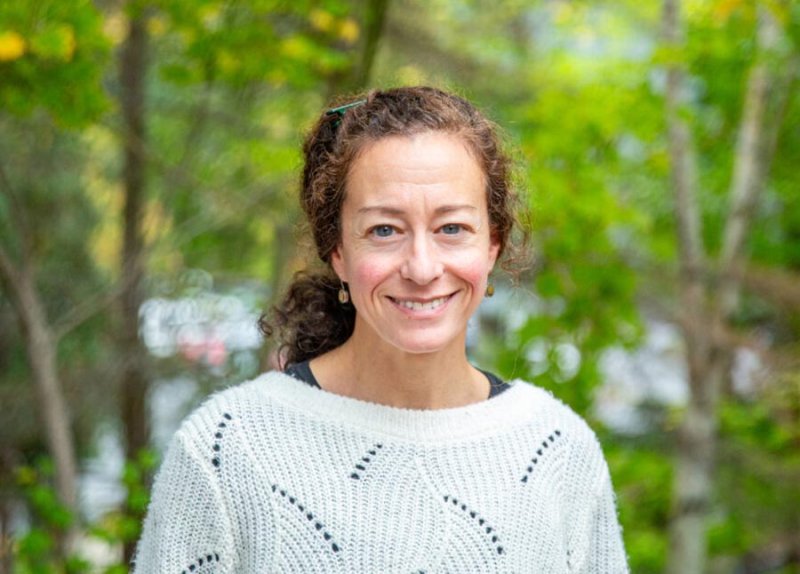WWU’s Robin Kodner Secures $1.9M NSF Grant to Support DEI Initiatives in Scientific Societies
Western Washington University Associate Professor of Environmental Science Robin Kodner will lead a multi-university team on a new $1.9 million National Science Foundation grant to implement ADEI initiatives within major scientific societies in government, the private sector, and higher education.
The grant from the NSF’s Leading Cultural Change through Professional Societies (LEAPS) Program includes collaborators at Clemson University, the University of Wisconsin at Madison, and the State University of New York at Oneonta. The grant’s formal title, “EVOLVED: Embedding a Vision to Operationalize, Lift up, and Value Equity and Diversity in the Consortium of Aquatic Science Societies,” takes direct aim at the efforts of Kodner and her collaborators to build and implement a culture within STEM-focused scientific societies that supports and welcomes a diverse community. Scientific societies recruit the next generation of scientists, host conferences and publish scientific journals, and are an incredibly valuable space for young professionals to network.
These workshops will help scientists in these groups think about identity, race and culture within their communities.
Robin Kodner
“This grant is about recruiting and teaching more students from underrepresented groups to study in aquatic sciences, but also about pushing for culture change with the scientific societies, so that when these students graduate and begin careers, they are landing in places where they are valued and can bring their unique perspectives to bear,” Kodner said.
Kodner said the grant will be implemented in three ways.
The first is to create programming for students that will broaden participation of underrepresented or marginalized groups into the aquatic sciences, and once in the majors, assist them with mentorship from senior faculty and peer-group communities to help foster their retention.
The second is to envision a more inclusive culture within the sciences and the greater scientific community by creating workshops that are charged with educating their membership. This builds on the ISMS (Inclusion and Social Mindfulness in STEM) workshops started at WWU as a collaboration between former WWU Inclusion and Outreach Specialist Regina Barber, WWU Professor of Biology Lina Dahlberg who is also working on the EVOLVED program, and Kodner. Barber, Dahlberg, and Kodner received the WWU Diversity Achievement Award for this effort in 2018.
“These workshops will help scientists in these groups think about identity, race and culture within their communities,” she said. “The goal here is to make inclusivity as much a part of their mission as their research, and a big way to get there is through workforce-development opportunities like these.”
The last objective will be building and installing the infrastructure within these scientific societies for shared resources and information.
“The Consortium for Aquatics Science Societies (CASS), the umbrella group for ten scientific societies with a membership of more than 20,000 scientists, will host a web portal where all the strategic planning work, data, programming, and conversations around EVOLVED can be housed and be easily accessible for all,” Kodner said. “This will make navigating all the opportunities across all these societies easy and help showcase all the diverse people and research happening within CASS societies.”
Part of the EVOLVED grant funding has been used to hire a program manager (WWU alumna Megan McGinty) who will assist in the launch and upkeep of all three major focus elements of the EVOLVED grant for the length of its 4-year funding cycle.
Deborah Robinson, the past president of the Phycological Society of America and a professor of Biology at Clark University in Chicago, said the efforts of the EVOLVED team are important building blocks towards a more equitable scientific workforce.
"Scientific societies are essentially communities of practice in which members have an opportunity to network, collaborate, develop professional skills, learn, and share research findings. However, scientific societies have not always been aware of the barriers that may prevent participation of some members of our scientific community,” she said. “Robin's work with the EVOLVED team will help the societies that are part of CASS create programs and opportunities that support a diverse community of scientists with an eye towards students and early-career scientists. The EVOLVED program allows the CASS members to share best practices (and those ideas that just did not work), creating an efficiency in the development of more inclusive, supportive, and welcoming communities of practice."
Susan Park, executive director of the Coastal and Estuarine Research Foundation (CERF), agreed with Robinson.
“CERF has articulated a commitment to diversity and equity since our 2016 strategic plan, and has been working in partnership with CASS to move forward on many DEI initiatives, including promoting aquatic science careers at the SACNAS National Diversity in STEM Conference and infusing diversity, equity, and inclusion into the 2022 Joint Aquatic Sciences Meeting,” she said. “Aquatic science societies have an incredibly important role to play in leading culture change in our disciplines, but it takes a lot of work and coordination, and scientific societies are largely run by volunteers. Robin's efforts will provide CASS with the capacity to actualize the vision we have had for sustaining and expanding our culture-change goals.”
Kodner said the leadership within CASS was instrumental in getting the grant done.
“In our early workshopping that basically set the stage for writing the grant application, it was the CASS leadership telling me this was what they wanted and needed – I didn’t need to fight for it at all,” she said.
“We will work with CASS to build this and put it in place, and they will advocate for that change within their organizations,” she said. “It really will be a rising tide that through our collaboration with CASS, will implement this work faster and further than any one society or institution could do alone,” Kodner said.
For more information on the new NSF EVOLVED grant, contact Robin Kodner at kodnerr@wwu.edu.
